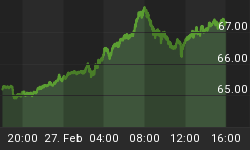For the old-school fine art connoisseurs, the artwork of elusive British artist Banksy, the art world’s elite prankster, might be considered offensive. Still, his art pieces are hugely popular at mainstream auction houses.
But that is not where it ends. There is also digital Banksy, or as the media calls him ‘fake Banksy” who just raised more than $1 million in cryptocurrency Ether from NFT (non-fungible token) sales.
Pest Control, which acts as an official authenticator for his artwork, calls it a knock-off, but that doesn’t seem to be putting a dent in demand.
The artist behind the NFT, known only as Pest Supply, claims to base his work on Elaine Sturtevant, who rose to fame in the 1960s copying and reconstructing other artists’ pieces.
It’s all happening because of the rise of NFTs, which are cryptocurrency tokens used to represent assets such as digital art, movies or music.
The NFT market is booming.
Compared to 2019, it tripled last year to $250+ million.
And this year, NBA Top Shot, an NFT marketplace for basketball highlight reels, just cleared $95 million in sales in seven days.
It is, indeed, difficult to wrap your head around why people would pay six figures for a sports highlight clip they could probably watch for free.
There are some benefits that can be expressed as tangible, however.
Each NFT is completely distinct from any other NFT and easily verifiable and traceable to the original issuer.
And for artists, like the knock-off Banksy, selling artwork through an NFT platform gives them the opportunity to reach out to potential buyers globally without relying on fancy auction houses or galleries. NFTs also mean that artists can program royalties into their sales automatically.
For the sports industry, it is best to think of the NFT craze as the new way to buy sports cards with clips created through blockchain. The clips are produced a fixed number of times and when they are gone they will be impossible to buy again, ostensibly making them worth a ton of money for the owners. They are encrypted, impossible to hack (so they say) and impossible to duplicate. Those are the key facets of anything “collectible”.
For all the naysayers out there who think it’s ridiculous to pay six figures for something you can watch for free whenever you want, this isn’t about watching, it’s about collecting and the amount of money pouring into this seems to prove that collecting has definitively gone digital.
















